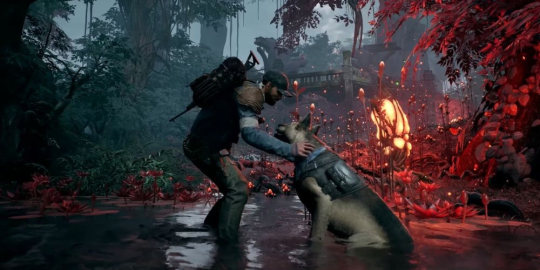
In recent gaming news, the triumph of good game design has been beautifully illustrated by Remnant 2's impressive success. The sequel to the well-received Remnant: From the Ashes has reached an extraordinary milestone, clocking in over 2 million sales — a feat that speaks volumes about its quality and the appetite for engaging gaming experiences without the trappings of modern gaming's pitfalls. Within this surge lies proof that gamers place high value on content-rich, straightforward, and well-crafted journeys.
Navigating the gaming market's seismic shift towards live services and microtransactions, Remnant 2 emerges as a bastion of traditional gaming values. It's a title that has refined the formula of its predecessor, offering faster immersion into its intricate multiverse and enhancing gameplay with an expanded range of features. This is not just an iterative improvement; it's a transformative progression that resonates with players, creating organic buzz and, more importantly, a deeply loyal player base. The gamer community's response is loud and clear — they're ready for meaty, unadulterated adventures.
Key to Remnant 2's appeal is its rejection of the often-criticized live-service model. Instead, the game stands out for its uncluttered, unambiguous fun. It's a game you can simply play without feeling nudged towards additional purchases. Subverting expectations, there's no battle pass or paid skins to distract from the pure, undiluted essence of what makes gaming enjoyable. This kind of player-centric approach is relatively rare in today's market, and it has clearly paid dividends for the developers.
Behind the scenes, developer Gunfire Games has shown commendable attentiveness to player feedback, underlining their commitment to polish Remnant 2 beyond its initial release. They've addressed performance hiccups, finetuned balance issues, and evolved gameplay based on gamer input — moves that have only endeared them further to their audience. The dedication to post-launch improvements demonstrates an understanding of gaming as a service in the truest sense: serving the needs of the players to enhance the gaming experience.
A standout example of how to do sequels and player engagement right, Remnant 2's success is no accident. It stands as a testament to the power of quality game development backed by genuine respect for the player community. The game's commercial success is heartening, not just for Gunfire Games, but for those who advocate for games designed with player satisfaction as the priority. This is the kind of gaming landscape many hope to see more of — where excellence in creation rewards both developer and gamer alike.